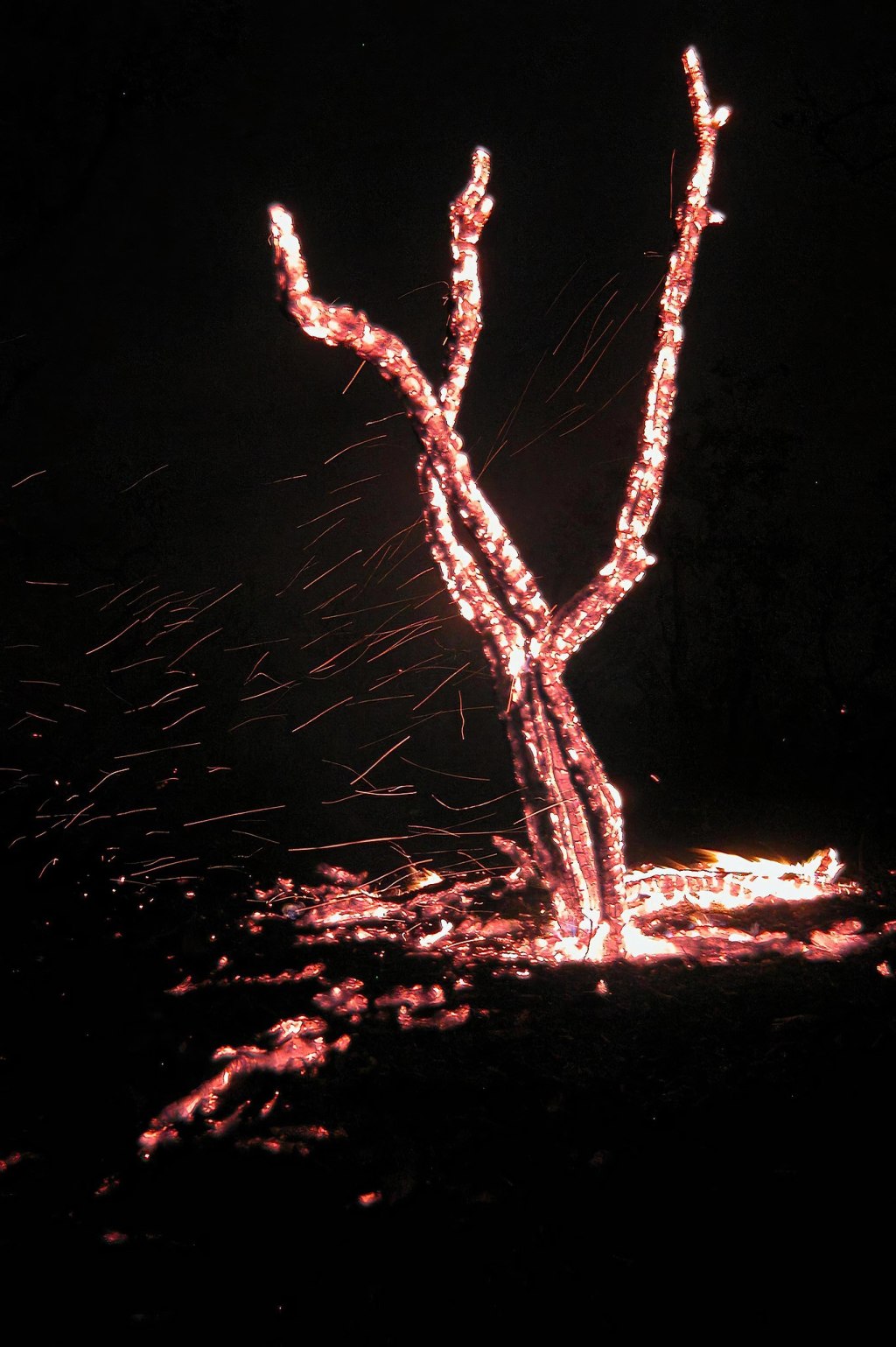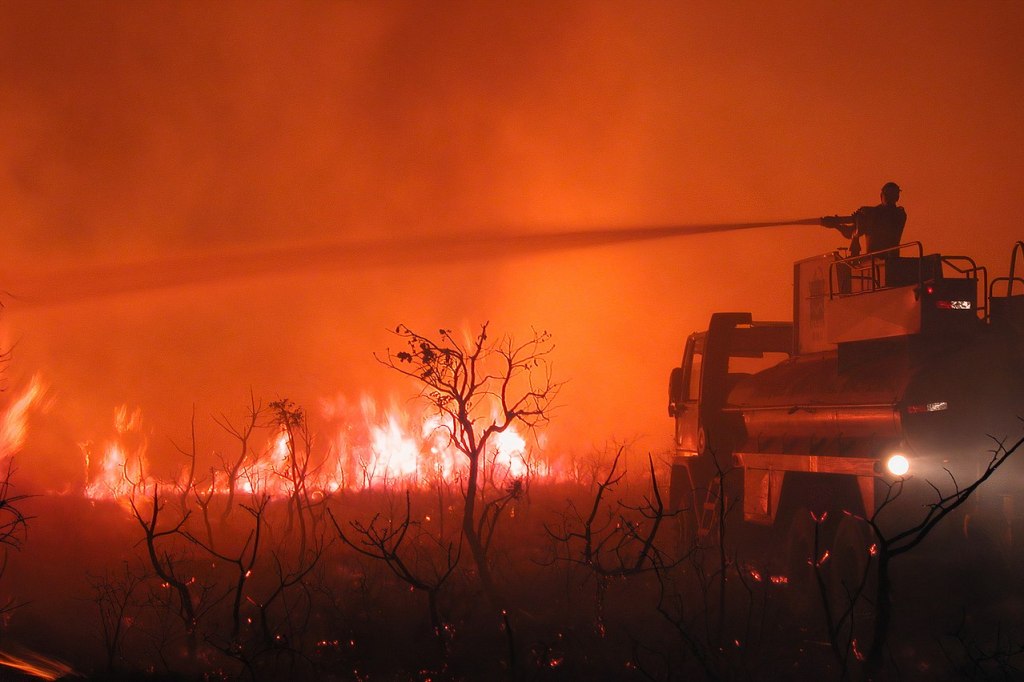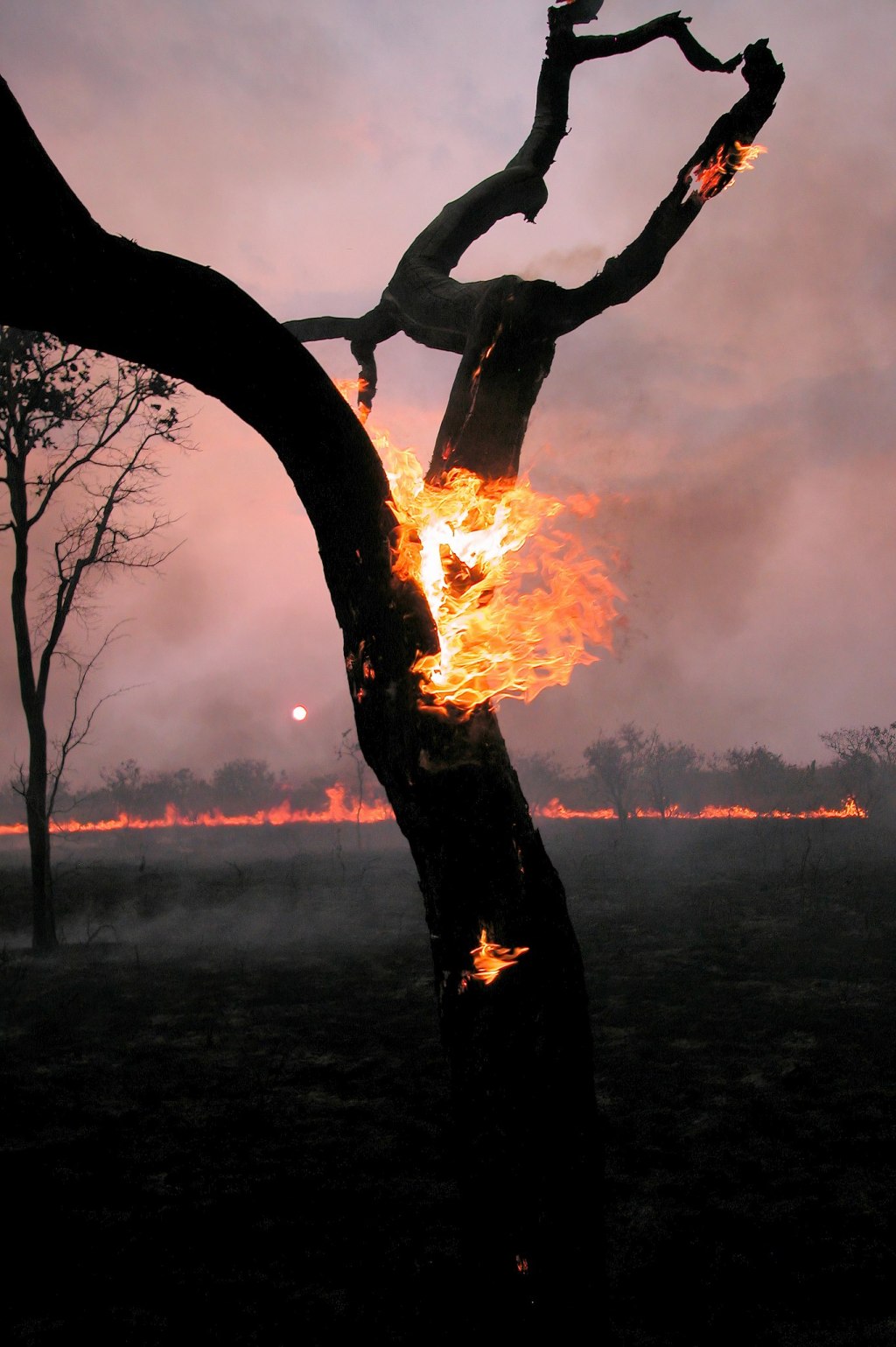Since 2014, dozens of countries around the world have organized annual photo contests devoted to their natural heritage within the international Wiki Loves Earth contest. In 2013 we held WLE in Ukraine for the first time, and in 2014 it went international. Overall, WLE collected 767k free photos of protected areas, with around 180k being used in the wikiprojects.
In 2021, we introduced the Human rights and Environment special nomination supporting the initiative Wiki4HumanRights, which partners with the Wikimedia Foundation (WMF) and the Office of the High Commissioner for Human Rights (OHCHR). Its goal is to raise awareness of nature protection and human impacts on nature.
In 2021 the contest united 34 countries and territories, with 9 of them joining Wiki4HumanRights and receiving submissions for the new nomination. Last week our jurors had a final round evaluating the pictures, and we are delighted to present the top-5 of the Human rights and Environment special nomination!
1st place: photo 1, photo 2, photo 3 by Mario Barroso, CC BY-SA 4.0
These pictures taken in the Emas National Park make a powerful triptych referring to the immense challenges Brazil is facing regarding the conservation of its natural ecosystems. The country has experienced unprecedented wildfires in the last decade. The Emas National Park is a part of the Pantanal Biosphere Reserve and a UNESCO World Heritage Site in the states of Goiás and Mato Grosso do Sul in Brazil. It covers 1,320 square kilometers of cerrado savannah. Wildfire is a natural factor shaping tropical savannahs and has been present in the cerrado for thousands of years.
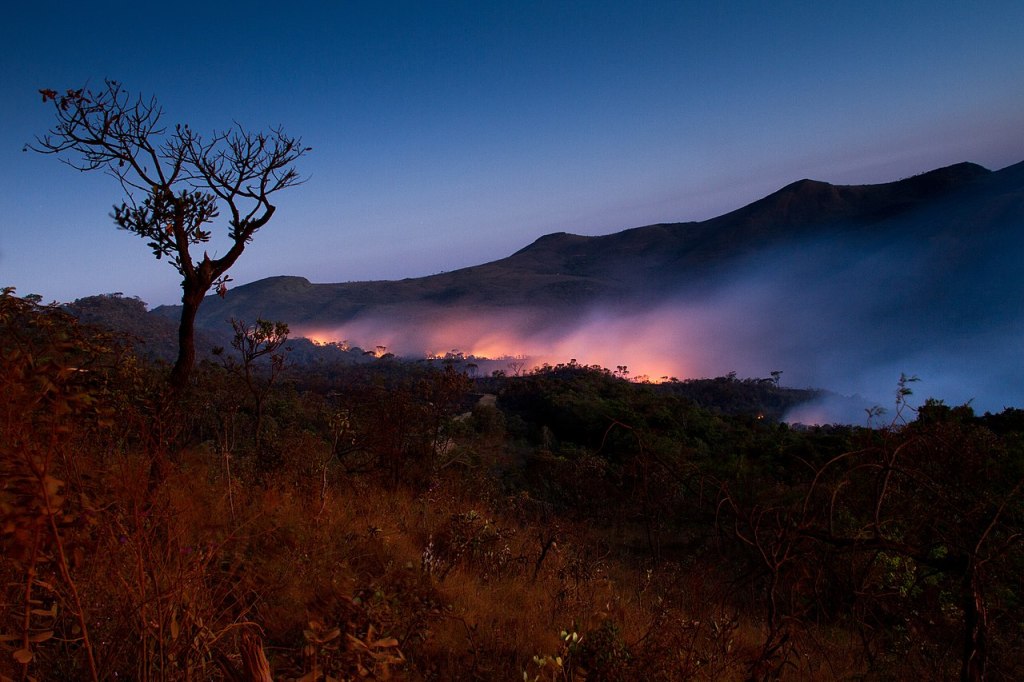
Another picture from Brazil depicts a wildfire in Serra do Gandarela National Park. It is situated within the Espinhaço Range and holds the largest intact remnant of Atlantic Forest in Minas Gerais. This transition region between the Atlantic Forest and Cerrado biomes contributes to species diversity.
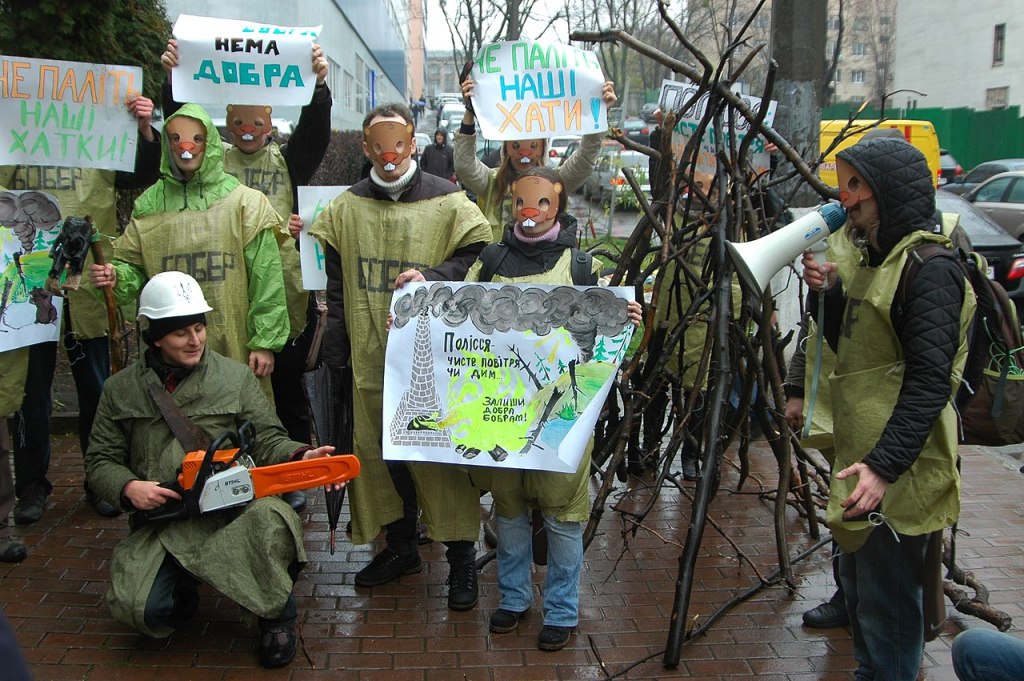
“On November 22, beavers built a house under the walls of the National Commission for State Regulation of Energy in protest of the threat of deforestation in Polissia region, Ukraine. Beavers are convinced that cutting down forests to burn them at thermal power plants is an unacceptable blow to the nature of Polissya and the climate on the planet”, — tells the author of picture about the “Don’t burn our houses!” action to protect the forests of Polissia, in particular Polissia Nature Reserve.
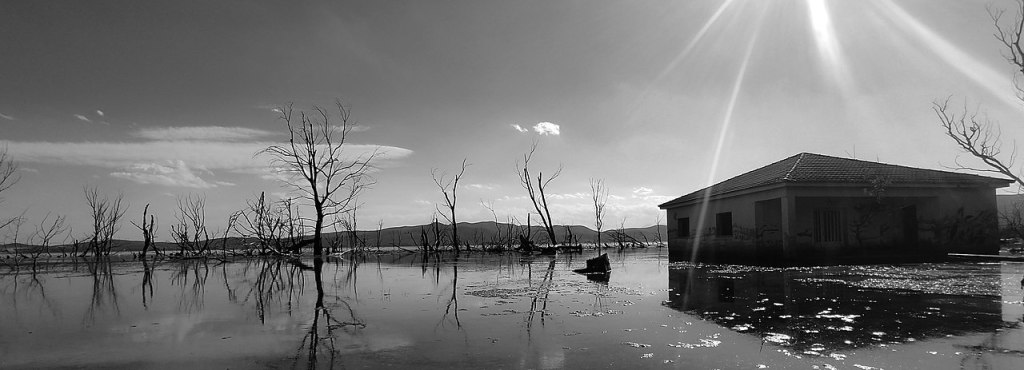
The author caught a mysterious view of Thousand Trees location, Doiran Lake, Greece. One of the jurors, Monica Iyer, comments: “The image alone conveys a powerful representation of human interaction with nature and the threats posed by rising waters. The lake was in danger of drying out and now is flood-prone because of human manipulation of the water supply”.
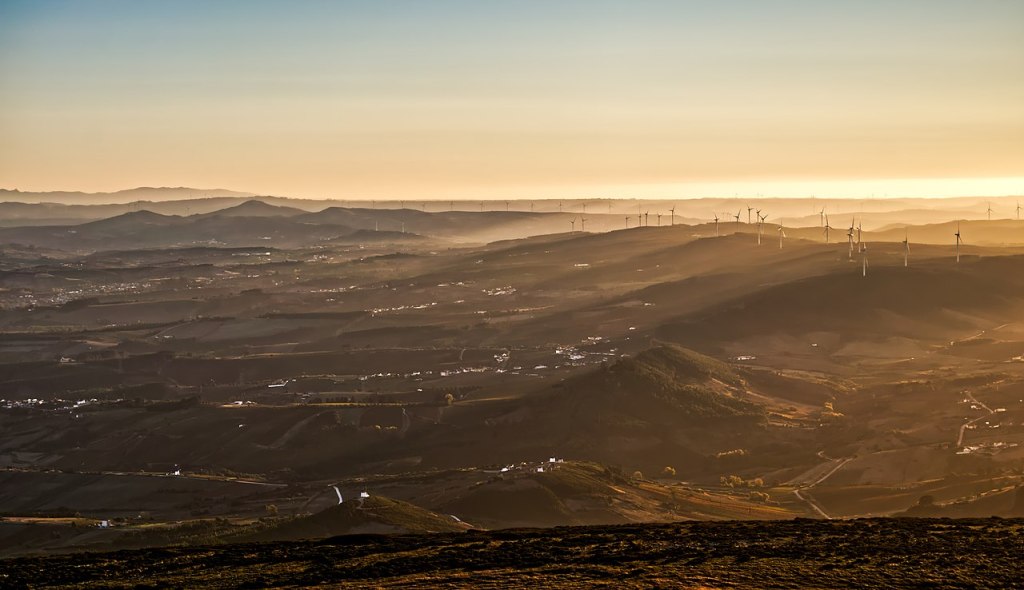
The photo shows us a stunning view at sunset from the top of Serra de Montejunto, a protected landscape in the Montejunto-Estrela mountain range, Portugal. We can see some wind farms on neighboring small hills and Serra da Arrábida in the distance. This mountain range, Serra da Arrábida, is a part of Arrábida Natural Park which comes into contact with the ocean.
The 10th edition of the Wiki Loves Earth contest is starting in one week, and we are happy to say that we will keep the Human rights and Environment special nomination this year!
We are grateful to our amazing jurors:
- Benjamin Schachter. Human Rights Officer and the focal point for climate change and the environment at the Office of the United Nations High Commissioner for Human Rights (OHCHR). Prior to joining OHCHR, he worked as an attorney in the United States and as a Research Assistant to the United Nations Special Rapporteur on the rights of indigenous peoples at the University of Arizona.
- Lukas Mezger. Attorney and climate activist from Germany. As a longtime Wikipedian, he currently serves as the chair of the Wikimedia Deutschland supervisory board.
- Monica Iyer. Human rights attorney, advocate, and researcher with a particular interest and expertise in human rights and the environment.
- Oleksiy Vasyliuk. Chairman of the Board of Ukrainian Nature Conservation Group. Since the full-scale Russian invasion of Ukraine, he has been working to help the occupied national parks and rescue the environmentalists from the war zone. In peacetime, he is involved in various initiatives to help protected areas and designs new national parks.

Can you help us translate this article?
In order for this article to reach as many people as possible we would like your help. Can you translate this article to get the message out?
Start translation
